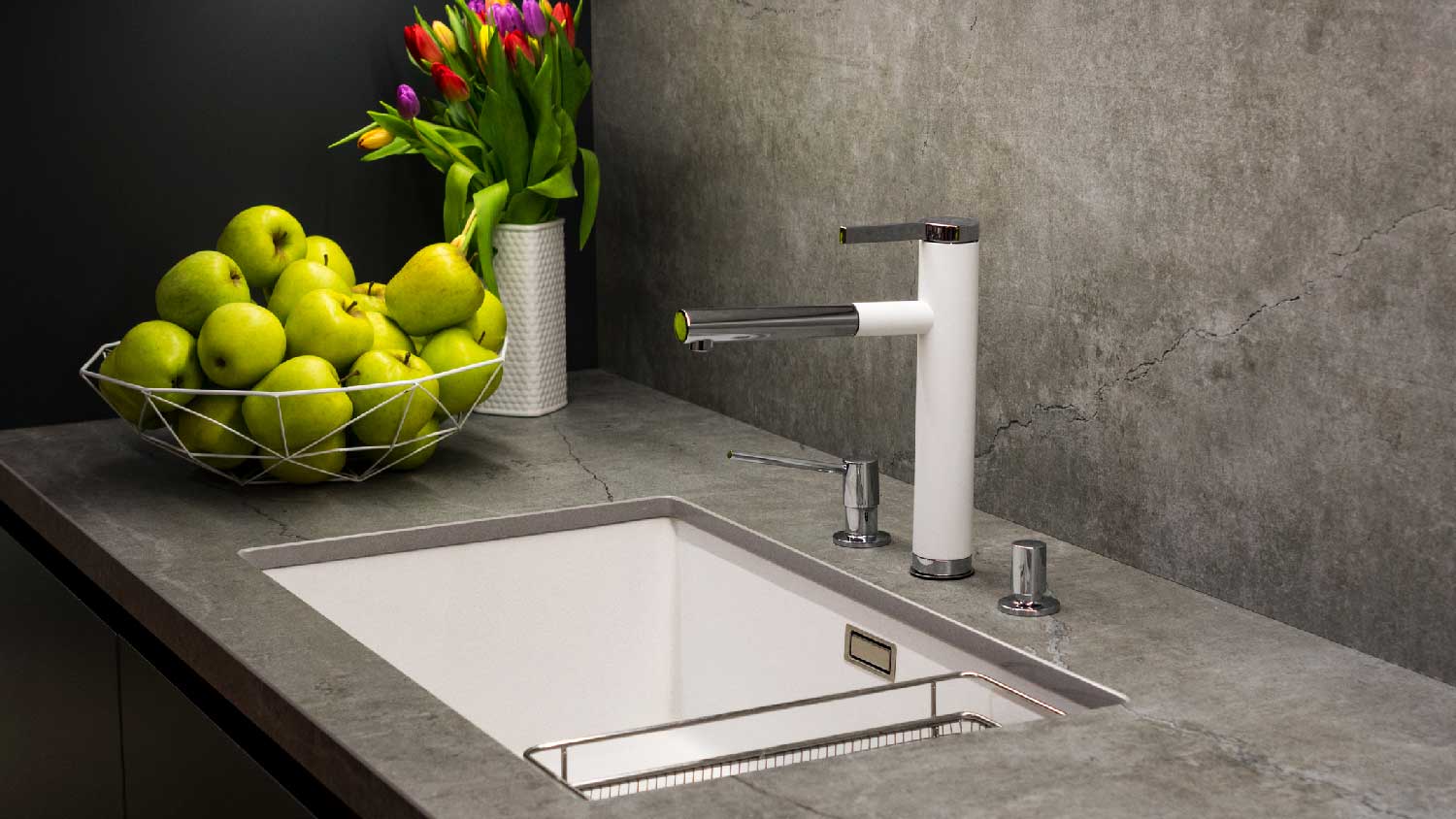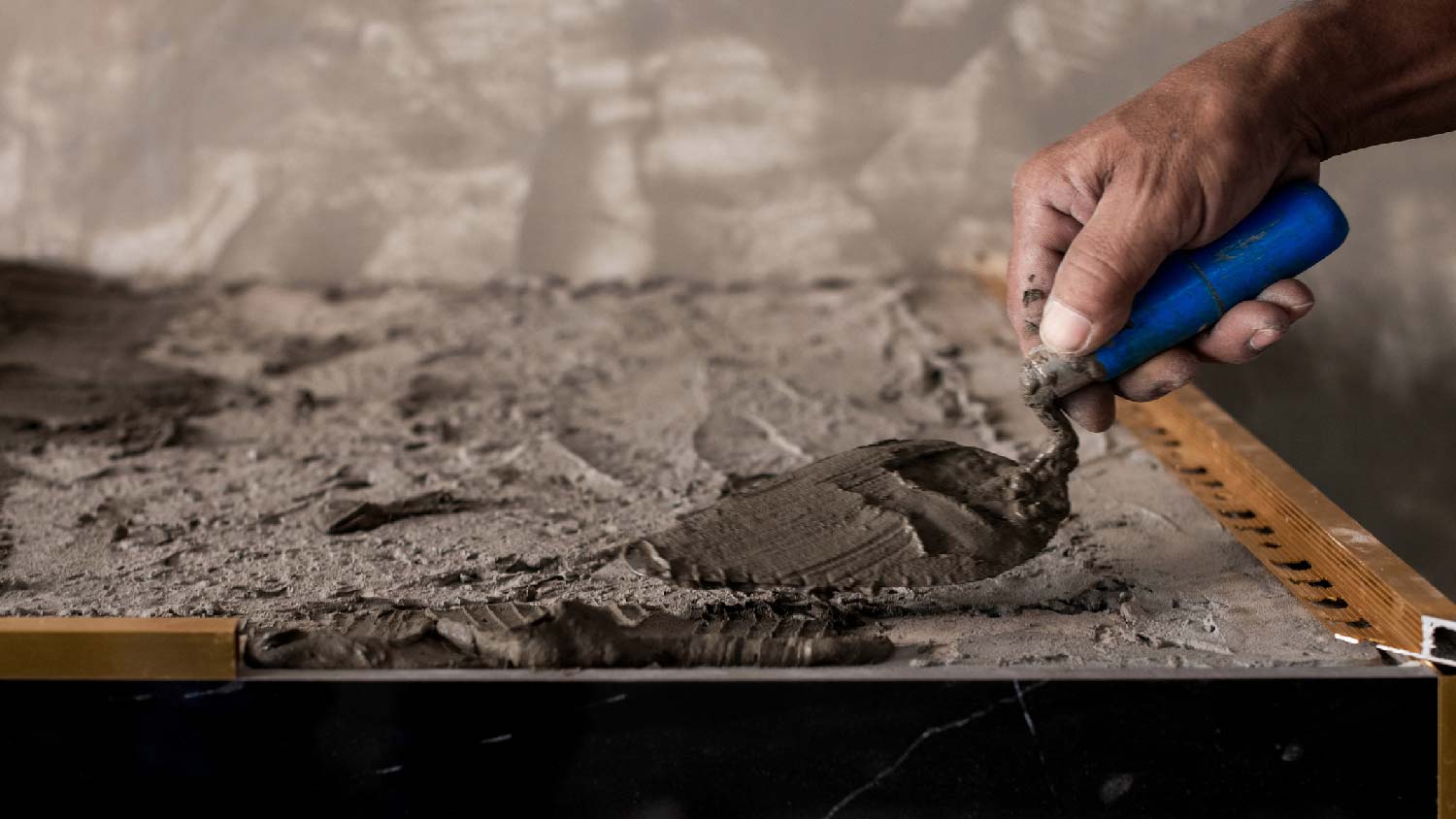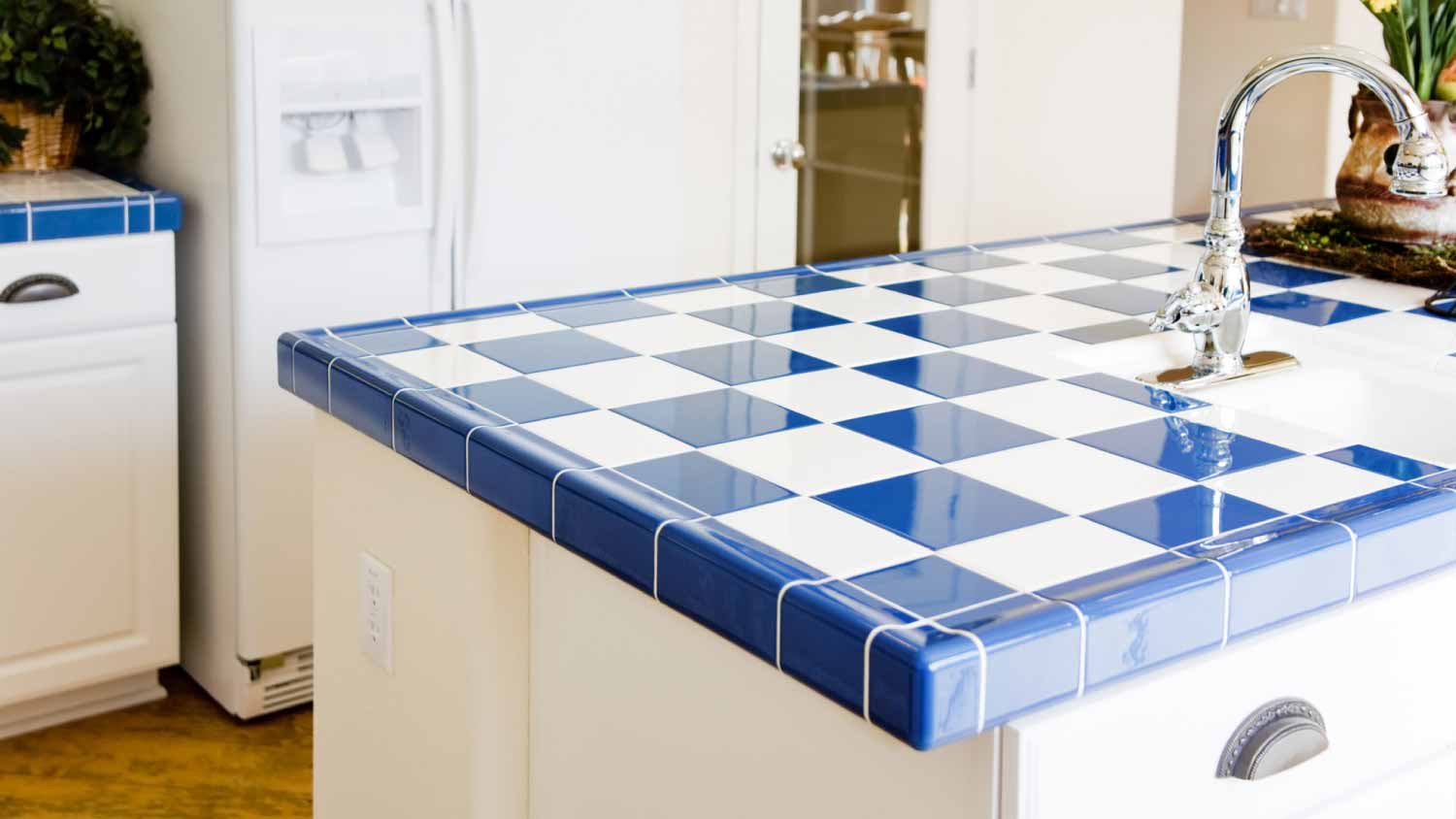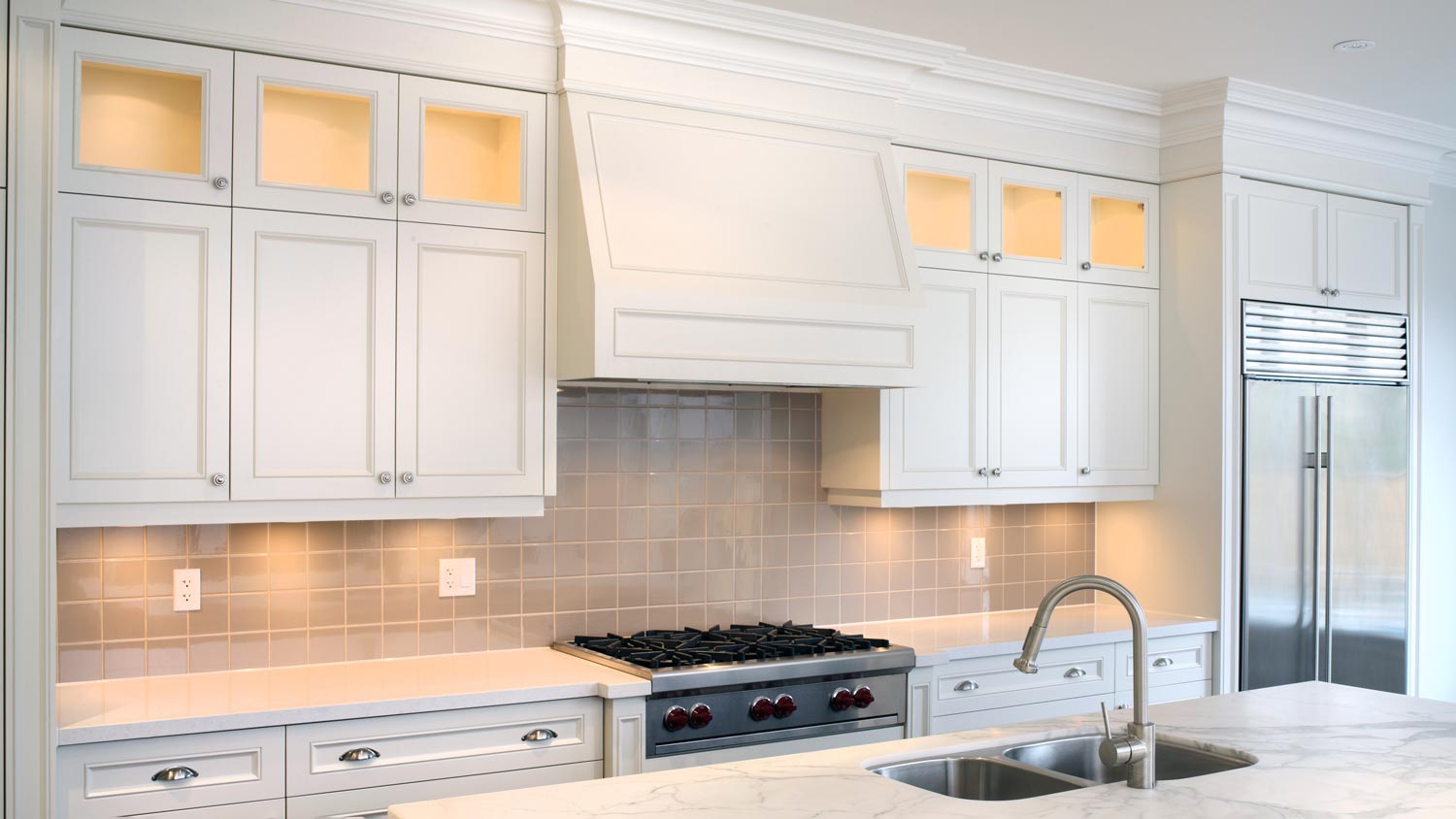
Discover the cost of installing laminate countertops, including how their size, material, and finish impact your total price.
Don’t let these issues with concrete countertops hit you like a brick


Common issues with concrete countertops include cracking, chipping, and staining.
You can repair cracks and chips with concrete patching compound.
Concrete is highly porous, so you’ll need to seal it every year.
Reinforce your cabinets to prevent damage from the weight of concrete.
Always allow concrete to cure for at least a week unless it’s a specialized mix.
Concrete is an increasingly popular countertop material, partly because of its long life span and modern, industrial aesthetic. That said, it's not the most budget-friendly kitchen countertop idea. To protect your investment, it’s a good idea to get ahead of the most common problems with concrete countertops. You can prevent issues like cracking, curling, and pinholes if you know what to look out for.
One of the largest problems with concrete countertops is their strength. Though this material is highly durable, it has relatively low tensile strength and can be brittle. This means that if you drop a heavy object on the surface, your concrete can crack or chip—especially if your countertops have overhangs, which can stress the material over time.
Blunt force isn’t always the issue, though. An excessively heavy object can wear down the material over time, causing hairline cracks. Shrinkage (a normal part of the concrete curing process) and heat can also pose a similar issue, along with uneven supports that don’t properly distribute weight.
Based on responses from 8,700 Angi customers, the most common countertop repair is fixing damage such as chips and cracks, which accounts for 38.5% of requests. Maintenance-related tasks are also frequent, including sealing (15.3%), polishing (14.3%), and cleaning (8.4%). While these figures include all countertop types, they are particularly relevant for concrete countertops, which are prone to surface damage, though chips and cracks are common issues across other materials as well.
The best way to prevent cracking is to hire a professional countertop contractor near you. They can properly install your countertop with a high-quality concrete mix and steel mesh reinforcements. This strengthens your concrete and prevents shrinkage. It’s also a good idea to let your countertops cure for at least a week before you use them. The longer it cures, the stronger it gets. You may also want to:
Choose a concrete countertopwithout overhangs
Avoid placing heavy appliances on your countertop
Use a trivet for hot pots
To repair your concrete countertops, fill in small cracks and chips with a concrete patching compound.
One of the biggest cons of concrete countertops is their porosity. Like most stone products, this material is naturally porous, meaning it can quickly absorb liquids (like that drop of oil you accidentally spilled while making a salad). As such, this material is highly prone to staining and can collect bacteria if not properly cleaned.
The best way to prevent staining and bacteria growth is to seal your concrete countertops annually. Make sure to use a food-safe sealant. Even then, it’s still important to clean up spills immediately. Sealing can go great lengths, but it’s not impervious. If you have significant stains that won’t lift with traditional cleaning products, you may need to use muriatic acid to etch the concrete and then reseal it.

Concrete is an extremely heavy material, which is part of the reason concrete countertops cost so much to install. The average concrete countertop can weigh anywhere from 20 to 25 pounds per square foot—or more than 700 pounds for the average 35-square-foot kitchen countertop space. This weight can put stress on your base cabinets and flooring, leading to damage.
When you install concrete countertops, make sure your contractor reinforces your cabinetry and anchors your countertops to the floor. You want to ensure the weight is evenly distributed so there aren’t random pressure points that crack your cabinets or flooring underneath.
Pinholes are one of the most common problems with concrete countertops. When a contractor mixes and pours the concrete, air bubbles get trapped within the material. With a good mix, most air bubbles will rise to the surface and escape before the concrete dries. If your mix is too stiff or overfilled with heavy aggregates, the air may not be able to escape, leading to pinholes.
Even if you don’t notice pinholes on the surface, they may hide just below it. Smaller pinholes are the most common because they don’t have as much force to escape. Unfortunately, this does weaken your countertops.
Make sure your concrete mix is fluid. The ideal mixture has a texture similar to peanut butter. When pouring concrete, use an orbital sander without any sandpaper to lightly vibrate the sides of your concrete mold and shake out the air bubbles. You may not be able to eliminate all pinholes, but you can certainly reduce the amount.
Curling occurs when a slab of concrete does not properly cure. You’ll notice the slab buckling or curling upwards. This typically occurs when one side of the concrete dries out, but the other side clings onto moisture. The dry side will start to shrink and pull up the moist side.
Prevent curling by managing the airflow. Lift your slab (you can use sawhorses or cinder blocks) and cover it on all sides as it cures. This helps maintain even levels of air and moisture. Allow your slab to cure for at least five to seven days before handling, though high-performance mixes can cure in as little as one to two days.
Trowel marks are unsightly and contribute to a rough, uneven surface. If you trowel the concrete too early with a steel trowel, the pores get cut off, trapping any remaining moisture. It’ll look fine when it cures, but the imperfections will show once you sand. This can even happen after it’s already been sealed, requiring a costly repair.
Trowel marks are also commonly seen with pour-in-place concrete countertops. Again, this has to do with timing. If you reach for the steel trowel before the concrete has set, there will be marks in your future.
The best solutions to trowel marks are preventative. Pay attention to the timing, ensuring the concrete has sufficiently set and the moisture has evaporated. Slide the trowel around the top of the countertop: There should be a fair amount of resistance. Certain solutions, like Trowel Slick, help lubricate the countertop to minimize the chance of imperfections.
If the trowel marks are already present, you can grind and polish the surface using a wet polisher and diamond polishing pads. Start with the lowest grit and work your way up. Other options include applying a skim coat or laying down an epoxy coating.

Concrete is not like a granite countertop, for which contractors will cut the slab off-site and install it within a day. Because of the sheer weight of concrete, many contractors pour this material in place. That means you’re stuck waiting for it to set and cure—and the wait time with concrete is notoriously long.
This can pose a problem during a remodel. Your kitchen may be out of commission longer than you’d like. Unfortunately, since concrete strengthens the longer it cures, patience is a virtue.
The good news is that most concrete mixes cure enough for gentle use within a week or two. If you’re in a rush to remodel, your contractor can use a high-performance mix that cures within one to two days.
Beyond that, you can prevent certain factors that lead to excessively long set and cure times, which can delay your remodel. A super-watery mix with additives like pigments will take longer to cure, so make sure you have the right ratio. Cold temperatures also slow things down, so don’t do this project in your garage in the dead of winter.
Concrete is porous, so this type of countertop will develop a patina as a natural part of the aging process. Sealing helps, but doesn’t entirely prevent the development of patina. Other causes include acidic spills, like lemon juice or vinegar, and everyday wear and tear.
Some homeowners enjoy the rustic look of a patina, thanks to the unique discoloration. So, the easiest thing to try here is to simply embrace the change in aesthetics. If that’s a no-go, focus on maintenance and preventive care. Avoid handling acidic liquids near the countertop, clean up spills immediately, and always use a cutting board. Conducting regular maintenance tasks like cleaning and resealing can help, too.
To remove an existing patina, polish the surface with a concrete polisher and diamond pads, then add a sealant. If the patina is due to staining, consider using a poultice of baking soda and acetone to draw out the stain. Finally, throw on an epoxy coating for added protection.
Concrete countertop installation costs vary based on the installation method. Slab installation costs range from $40 to $200 per square foot, depending on factors such as the thickness of the material and any customizations.
There are also precast or cast-in-place methods. Precast ranges between $60 and $150 per square foot and involves making a mold, pouring the concrete off-site, and installing it once it is cured. The cast-in-place method costs around $50 to $125 per square foot and involves building a frame on your cabinetry and pouring the concrete directly into it.
Installing concrete countertops can be a rewarding DIY project if you have experience with concrete and carpentry. It allows you to customize your countertops to your specifications and save on labor costs. However, it requires precise work and specialized tools to ensure a smooth, durable finish. Mistakes are often costly and hard to fix, so assess your skill level before taking on this project.
Hiring a professional to install concrete countertops ensures a high-quality, durable result. Pros have the expertise and equipment to handle complex installations and avoid common pitfalls. While it is more expensive, the investment can be worth it for a flawless finish and satisfying outcome.
From average costs to expert advice, get all the answers you need to get your job done.

Discover the cost of installing laminate countertops, including how their size, material, and finish impact your total price.

Countertop repair costs may be the deciding factor between replacing or repairing your counter. Let’s break down the cost to repair, resurface, or relaminate.

Explore how much concrete countertops cost to install based on factors like their size, thickness, location, finish, and labor rates.

Looking for a unique countertop material that’s low maintenance, durable, and cost-effective? Check out the pros and cons of porcelain countertops.

Learn how to tile kitchen countertops like a professional with this step-by-step guide—from tile selection to grout cleaning and sealing.

Whether installing new counters in your kitchen or trying to anchor the ones you have, here are 6 tips for how to secure a countertop to a cabinet.